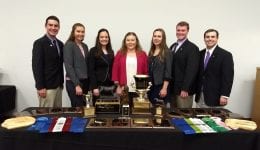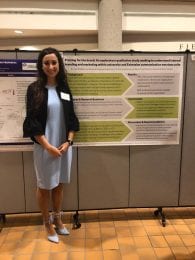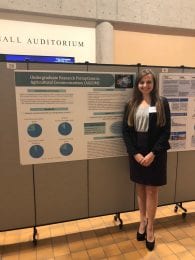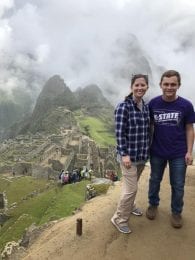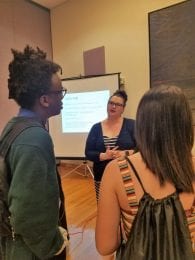submitted by Beth Stuewe for the K-State Today, November 6, 2019
The K-State Advisor Forum has selected Brandie Disberger, instructor in agricultural education, for the November Charlie award.
Disberger was nominated by her colleague, Gaea Hock, for the work that she does for both her advisees and students who have been reinstated in the College of Agriculture.
As an instructor, academic advisor, advisor to the agricultural education student organization and current doctoral student, Disberger sets a high standard in her department. In her nomination, Hock writes, “Brandie’s work ethic and dedication to students makes all of the faculty advisors in the department push to be better. We constantly go to her to ask her advice.”
Not only does Disberger encourage her peers, but she also encourages her students. Disberger encourages her students to push to get to the next level in their academic studies and extracurricular activities. She inspires them to take advantage of new opportunities as a way to better themselves for their future careers. Along with her current students, Disberger also works with newly reinstated students in the College of Agriculture. She encourages them and helps them be successful so that they can accomplish their goals of completing a degree.
Hock adds, “Brandie constantly goes above and beyond to make sure her students’ needs are being met. She is able to get them to open up to her and tell her their struggles. I have seen her go to extreme measures to help students succeed.”

